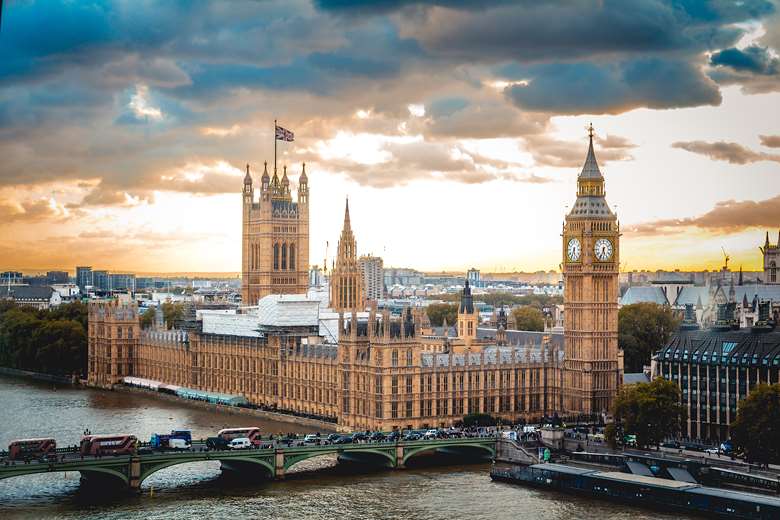What does the new Labour government mean for classical music?
Mark Pemberton
Tuesday, July 9, 2024
Following a landslide victory in last week's general election, prime minister Keir Starmer has announced his cabinet. Arts consultant Mark Pemberton explores the impact new leadership could have on the UK's classical music sector

As the polls predicted, we woke up on 5 July to a Labour government with a stonking majority. But there was one surprise – Thangam Debonnaire, the prospective secretary of state for culture, media and sport, losing her seat, meaning that the post is now held by Lisa Nandy. Unlike Thangam, who was a professional cellist, she does not appear to have as obvious a cultural hinterland. So, what does this mean for classical music?
Let’s start with money. It’s important to remember that funding for arts has been seriously hit by 14 years of austerity, with the amount in cash terms that Arts Council England gets in grant-in-aid from the Treasury the same today as it was in 2010 – a 40 per cent cut in real terms. Meanwhile, funding for the arts from local authorities has been almost eliminated, with a 50 per cent real-terms cut in central government funding meaning that 65 per cent of local government spending now goes on the rising cost of children’s services and adult social care.
So, will the new Labour government loosen the purse strings? In short, no. A quick look at Labour’s manifesto shows an acknowledgement of ‘acute financial challenges’, but no commitment to any new funding for local councils or the Arts Council, and it’s not likely to increase funding for the devolved governments either.
Instead, there is a vague statement that they will in some way encourage more income from philanthropy. As Thangam Debonnaire said in an arts hustings before the election: ‘a Labour government would work with the sector to attract more funding from different sources into arts organisations and put them on a more sustainable footing’. There had even been talk about looking to the USA for inspiration.
That sounds suspiciously similar to the language used by Jeremy Hunt ahead of becoming secretary of state for culture, media and sport in 2010. His plan involved implementing the Catalyst programme to boost endowments, but Labour has not yet confirmed how their ambition will be delivered, other than by ‘creating a private finance model to attract funding from different sources’. The USA may not be the best exemplar. As I heard at the recent League of American Orchestras conference in Houston, our US colleagues are worried about the shift away from traditional philanthropy that supported the arts to ‘new money’ philanthropists who prioritise causes that save the world and remedy social injustice.
We also need to see an end to the populist ideology adopted by the last government against ‘elites’. It is this that underpinned the catastrophic cuts to opera companies in Arts Council England’s latest funding round, alongside cuts to some of the more traditional orchestras, and the obsession with moving money from London to the ‘levelling up’ areas. Where does Labour stand on this? The message is mixed. Chris Bryant as shadow minister for the creative industries has said that the decision to cut English National Opera was ‘crazy’, but Thangam Debonnaire in turn confirmed she believes art is enriched when it is ‘reflected in the range of people who are able to tell their story, and who are able to see their stories represented on stage’.
This does not suggest there will be any immediate change to Arts Council England’s Let’s Create strategy, which has underpinned its cuts to classical music, but it might be getting nervous in response to Labour’s commitment to a ‘review to consider how best to position it for the next decade’. This is set to include a focus on ‘how the needs of nationally and internationally significant organisations, as well as those of smaller organisations that are responsive to places and communities, can be met’. Let’s hope it encourages a broad range of voices to contribute to that debate.
Labour does, however, provide more clarity in its support for creative education, including a pledge to review the curriculum and assessments to take account of the importance of creative subjects. There is also a specific commitment to implement a National Music Education Network, a one-stop-shop for local information on music provision, but no suggestion of a change to the current structure and funding model for the music education hubs, where there is a desperate need for additional funding.
Then there is higher education. Labour’s manifesto states that ‘the current higher education funding settlement does not work’ – but does not provide a solution. At a time when a growing number of arts courses at universities are closing, and music conservatoires are facing funding pressures, the lack of detail is worrying.
Finally, there are two big issues where the Labour government is promising a change from its predecessors. Firstly, it will be an end to the war on the BBC. That should mean the licence fee is secure, which will be good news for Radio 3 and the performing groups. Then there is Brexit, with Labour promising to get a better deal for touring artists. That may prove easier said than done, but at least the commitment is positive. The music industry needs to ensure it is actively engaged with the new government in finding solutions.
To conclude, it’s going to be a case of wait and see. It’s worth remembering, however, that although Tony Blair won the election in 1997 on a promise not to veer from the outgoing government’s spending plans, funding for the arts had increased within a few years. Here’s hoping history repeats itself.
Mark Pemberton is an arts consultant specialising in the classical music industry. He is the former chief executive of the Association of British Orchestras.


